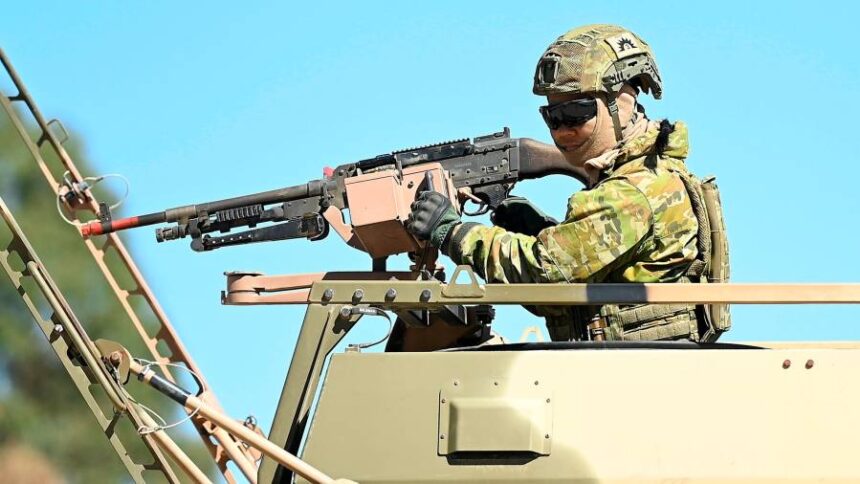Receive free Aukus updates
We’ll send you a myFT Daily Digest email rounding up the latest Aukus news every morning.
US and Australian officials have rejected concerns that a political fight in Washington could damage Canberra’s efforts to procure nuclear-powered submarines as agreed in the landmark 2021 Aukus deal.
US secretary of state Antony Blinken said on Saturday in Brisbane that there was “robust bipartisan support” for Aukus, a trilateral agreement that includes the UK and is designed to counter China in the Indo-Pacific.
Blinken’s comments, which followed an annual bilateral meeting of defence and foreign ministers, came days after 25 Republican senators urged the Biden administration to inject more money into the US domestic submarine industrial base, which is suffering critical production constraints.
In a letter to President Joe Biden, the senators said they backed the “vitally important” Aukus deal. But they said the US government had to invest more to make sure that a plan to transfer three Virginia class submarines — to help bridge the gap until Australia obtains its own submarines — did not weaken the US navy’s submarine fleet.
Describing the situation as normal political bargaining, Australian defence minister Richard Marles said he was “completely sanguine” about the submarine plan’s progress.
Charles Edel, an Australia expert at the CSIS think-tank in Washington, said Aukus was “not in danger” but was just being subjected to more scrutiny.
“There is broad support for Australia, and for Aukus, in Congress. There are also challenging questions as to whether, how, on whose dime and on what timeline the deal enhances American and allied security,” said Edel.
“Odds are that as more of those answers get provided, Aukus’s already strong-congressional backing will further solidify.”
The four ministers, including Lloyd Austin, the US defence secretary, and Australian foreign minister Penny Wong, pledged to work closely together in the Indo-Pacific region and announced plans to boost US troop deployments and maritime patrols as well as collaborate on space defence.
Australia will also begin manufacturing and supplying guided missiles to the US by 2025, which Marles said was a “very, very significant” boost to the country’s defence industry.
The talks were overshadowed by a helicopter crash off the coast of Queensland. Four Australian Defence Forces staff are missing. The helicopter was participating in the joint Talisman Sabre Exercise between Australia, the US and troops from 13 other countries including the UK, Indonesia, Fiji and Germany.
Saturday’s announcements were part of the Biden administration’s strategy to enhance security alliances across the Indo-Pacific in an effort to bolster deterrence to reduce the likelihood of China attacking or invading Taiwan.
That strategy has ranged from agreeing to supply Japan with Tomahawk cruise missiles that can reach China to an agreement with Manila to access four new bases in the Philippines.
In a significant move, US air force nuclear-capable B-52 bombers held their first joint exercises in Indonesia this month. Across Asia, the US is trying to boost co-operation with allies in Asia and diversify and expand the readiness of forces in the region.
Blinken said the US was engaging with China but opposed its efforts to “upend the status quo” across the Taiwan Strait. He added that Washington would counter Chinese “economic coercion or threat” in the region.
Ashley Townshend, an Indo-Pacific expert at the Carnegie Endowment for International Peace, said military co-operation had “emerged as the pace setter of a fundamental transformation in the character and purpose of the US-Australia alliance”.
“It will see Australia play an increasingly pivotal role in supporting high-end US war-fighting and combined military operations in the region as part of a strategy of collective deterrence,” said Townshend.








